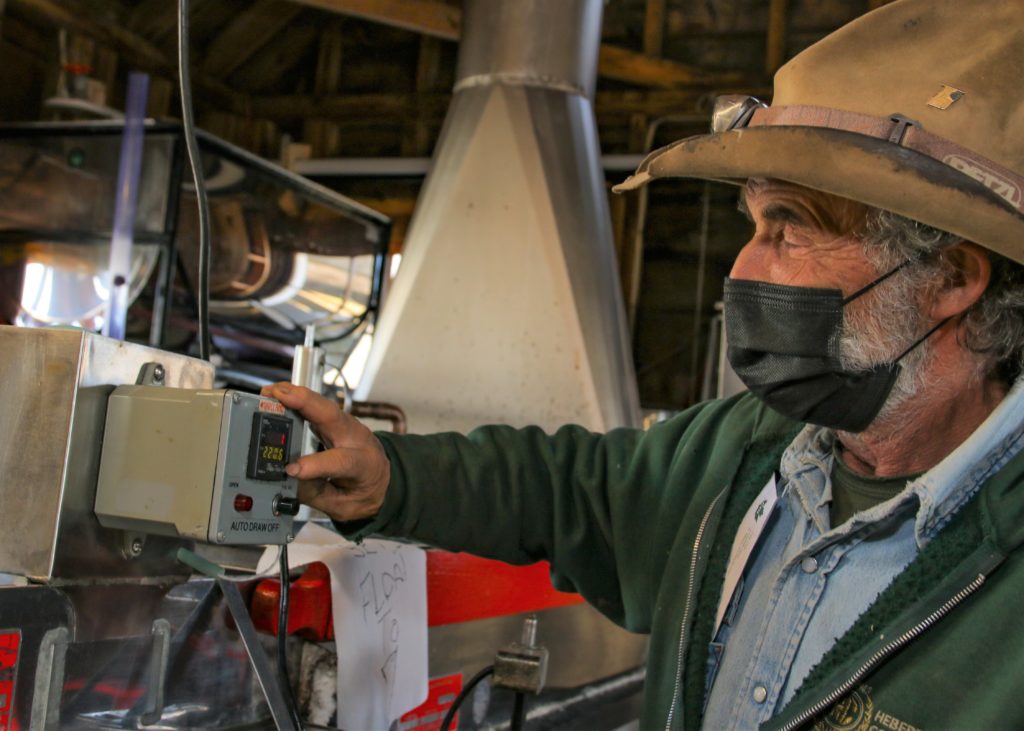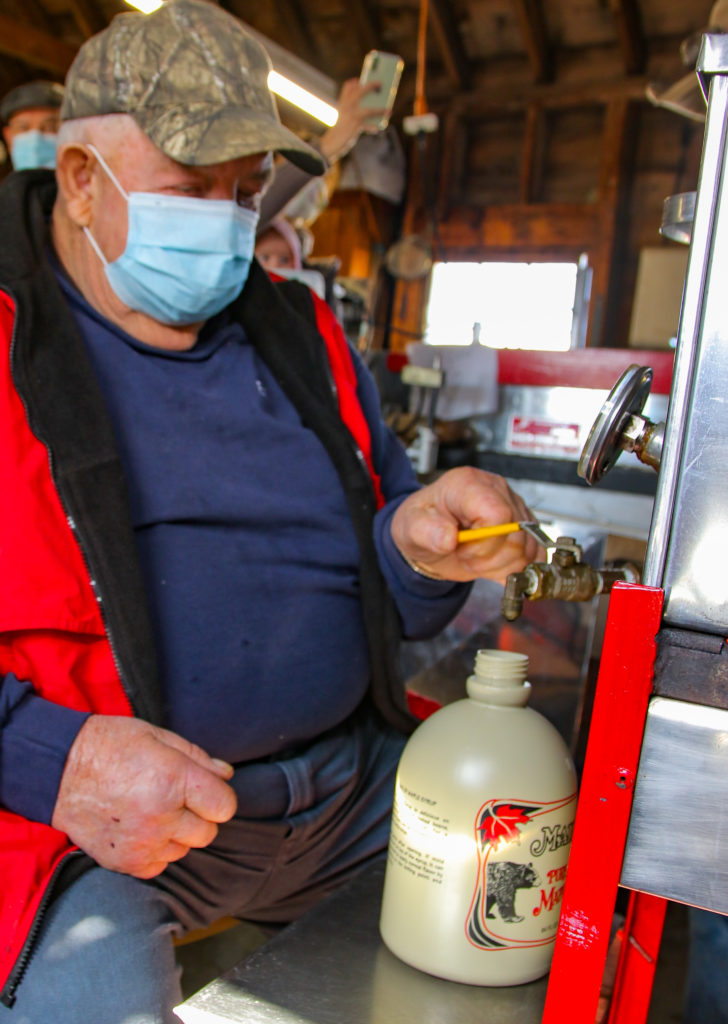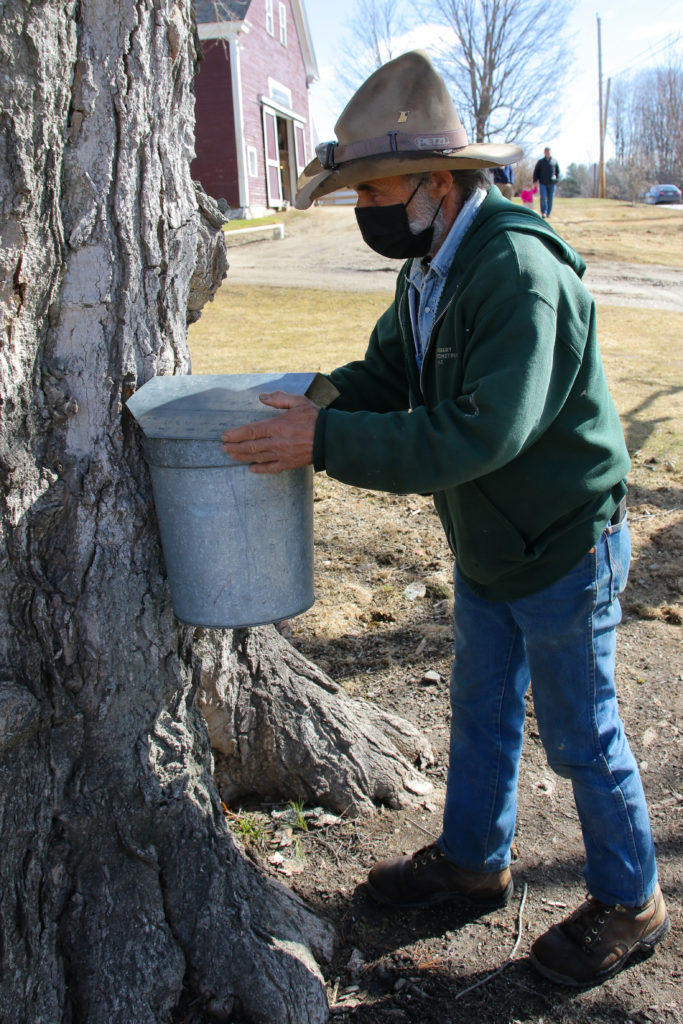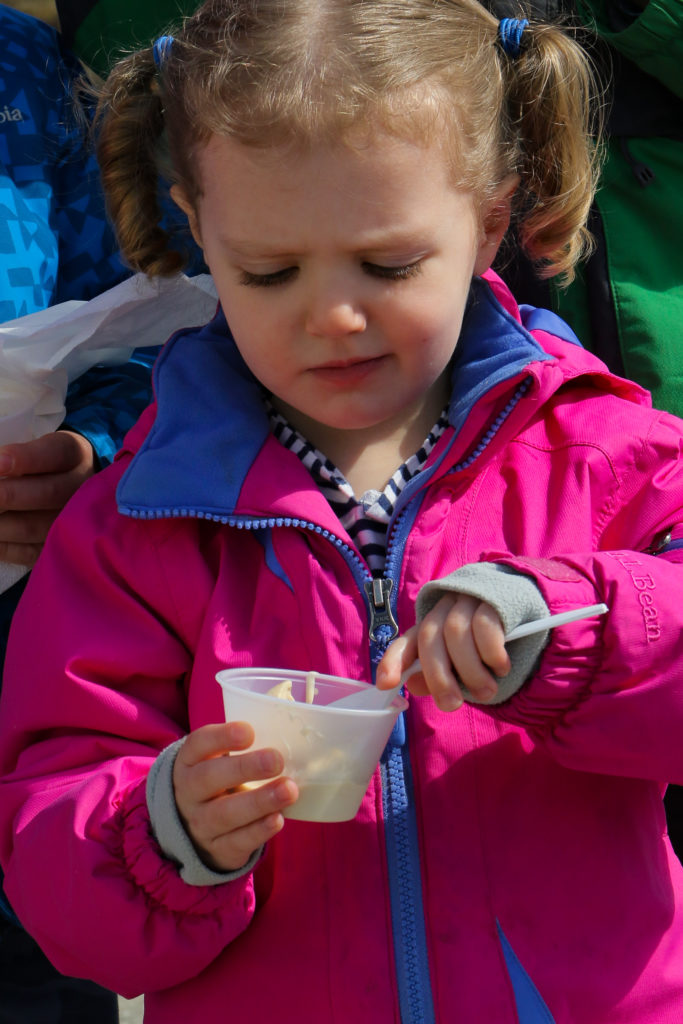Maine Maple Sunday sees limited visitors
By Nathan Tsukroff
SABATTUS – A year ago, Maine Maple Sunday was abruptly cancelled by the State of Maine as the COVID-19 pandemic hit the United States.
This year, although with limits on visitors and events, the event was back on the traditional fourth weekend of March.
Jillson’s Farm and Sugarhouse on Jordan Bridge Road in Sabattus was planning for just visitor to its sugarhouse and its store, since breakfast gatherings were not allowed this year.
The farm has served upwards of 900 breakfasts in past years, with cars “parked on both sides of the road for half a mile down,” owner Ed Jillson said. When breakfast is allowed to be served, Jillson’s provides a full meal of eggs, sausage, muffins, milk and juice.
He normally produces around 400 gallons of maple syrup during the season, but the warmer weather this year has lowered production to about 270 gallons. Sap generally starts flowing in mid-February in southern Maine, and is expected to end in April this year.

Sugarhouses in this part of Maine have had about 7 sap runs this year, while past years have generally seen 10 sap runs. The best years have seen as many as 15 sap runs.
A little more than 40 gallons of sap has to be boiled down to make a gallon of the finished syrup. So it will take about 15,500 gallons of sap to make the expected 270 gallons of syrup at Jillson’s Sugarhouse this season.
The boiling process removes the water in the sap and brings the sugar content to 66% from a starting point of 2%, at which point the syrup is boiling at 219 degrees Fahrenheit, or about 7 degrees above the boiling temperature of water. This process takes hours and hours, and has to be watched constantly.

For collecting the sap, taps are installed into trees that are at least 10-inches in diameter. Two taps can be placed in a 14-inch-diameter tree, and three in an 18-inch-diameter tree. Some trees have a collection container on each tap, or plastic tubing can be run from tree to tree, down to a single collection container.
Jillson said his team has about 3,000 taps on “a lot of roadside trees” throughout Androscoggin, Sagadahoc and Kennebec counties. Syrup is collected by pickup trucks carrying tanks for hauling 300-400 gallons of sap.
The finished syrup is filtered before being bottled or used for candies or other foods, to remove specks of dirt and other particles that are found in tree sap. The collection containers on the trees are covered to keep out rainwater and branches.
Roger Gervais, who calls himself “a wannabe sugarmaker”, runs the evaporator at Jillson’s Sugarhouse, which boils off water to make finished syrup. The evaporator is 40 inches wide and 8 feet long. It takes 45 gallons of sap at a two-inch depth to fill the evaporator. As the water boils off, the heavier liquid flows from one end to the other, and fresh sap is slowly added to maintain the level.
At the end of the evaporator, Gervais programs a digital controller that releases finished syrup when it reaches the proper boiling temperature. The syrup is then filtered to remove the impurities typically found in tree sap, and the finished product is finally ready for bottling or use in foods and candies.

“We used to have to watch the temperature with a thermometer here, and open and close the valve by hand,” Gervais said. That required two people to run the evaporator, so the automated syrup release means that now only one person is needed.
Jillson’s uses a filter press for the finished syrup. “If you didn’t filter it, you would take a quart and fill it with syrup and there would be a half-inch or three quarter-inch of muck in the bottom,” Gervais said. “When we were kids, we’d always have muck in the bottom of our syrup – we didn’t filter. So we’d open the canning jar and pour the syrup, and when the muck would come, we’d stop.”

Several years ago, Jillson’s purchased a used reverse osmosis machine that removes more than three quarters of the water from the sap, drastically reducing the time needed to create the finished syrup. For a collection of 1500 gallons, boiling might take upwards of 15 to 18 hours, while reverse osmosis removes enough water for the boiling to be completed in four or five hours.
The water that is removed is salvaged in tanks and used for cleaning the filter membranes and the evaporator, Gervais said.
Jillson’s Farm and Sugarhouse bottles the finished syrup, as well as creating candies and using the syrup in foods such as Maple Ice Cream. The store is open year-round, selling seasonal items along with maple syrup products. The farm hosts a craft fair in November.


